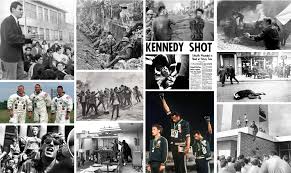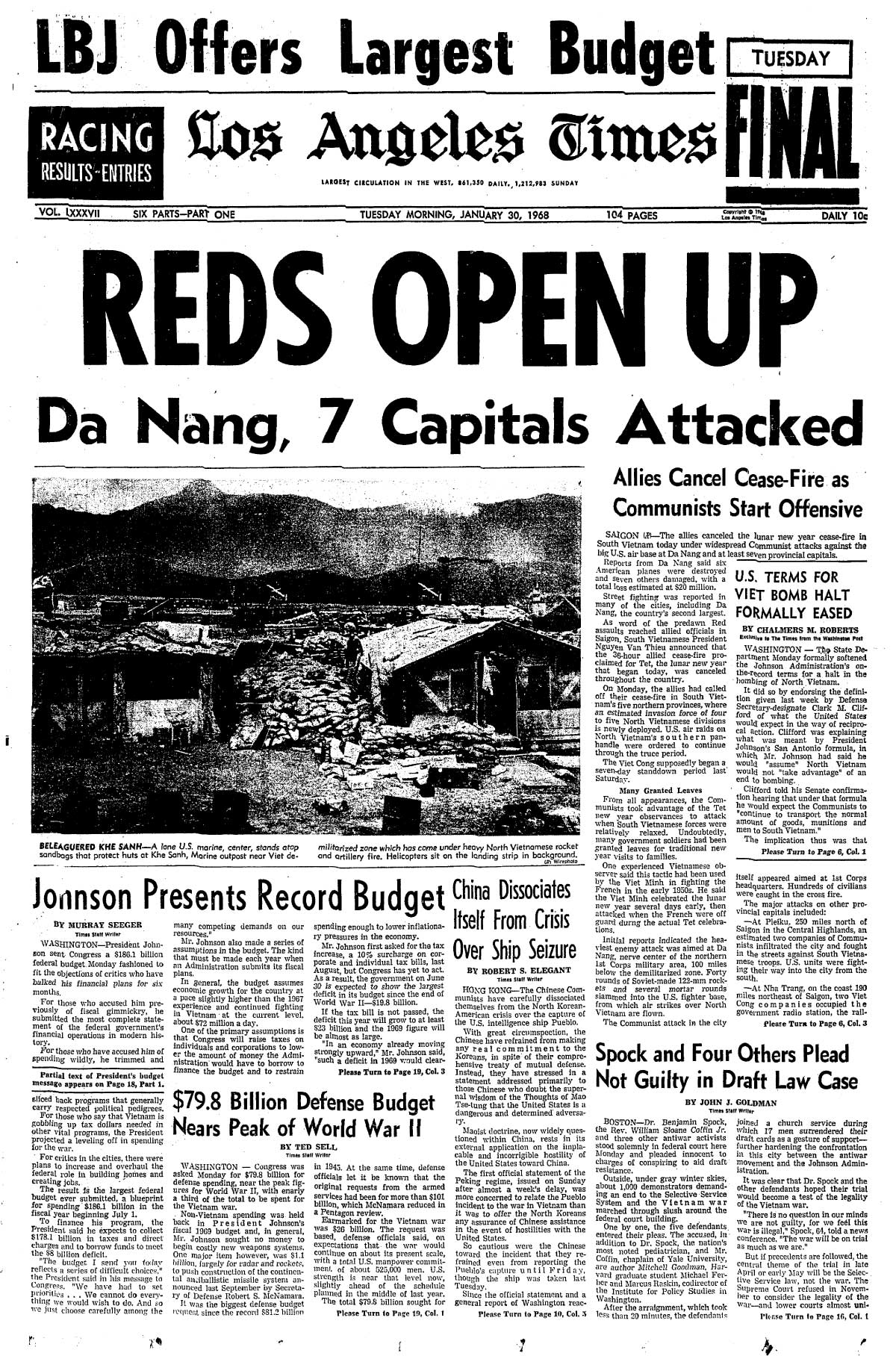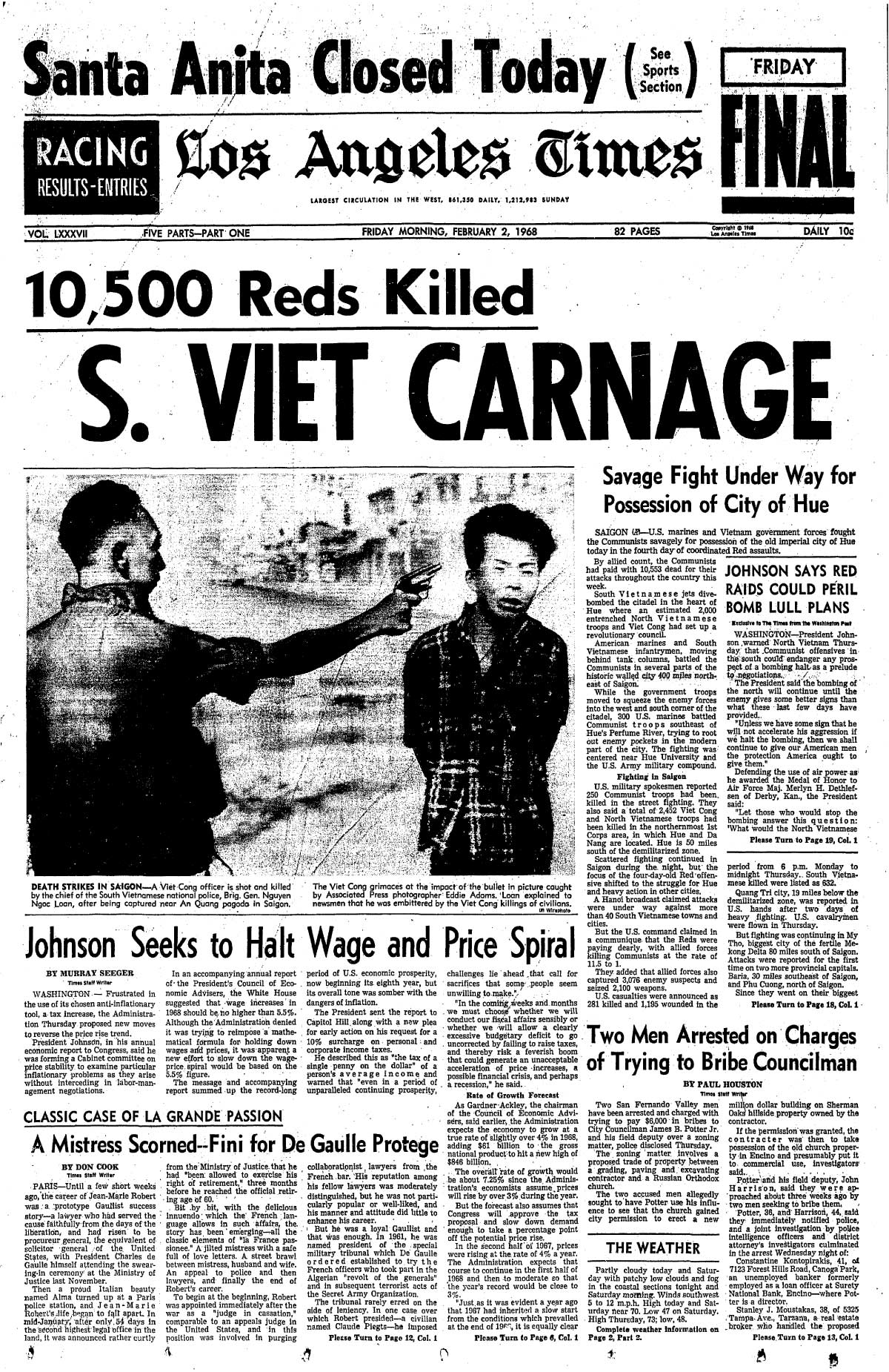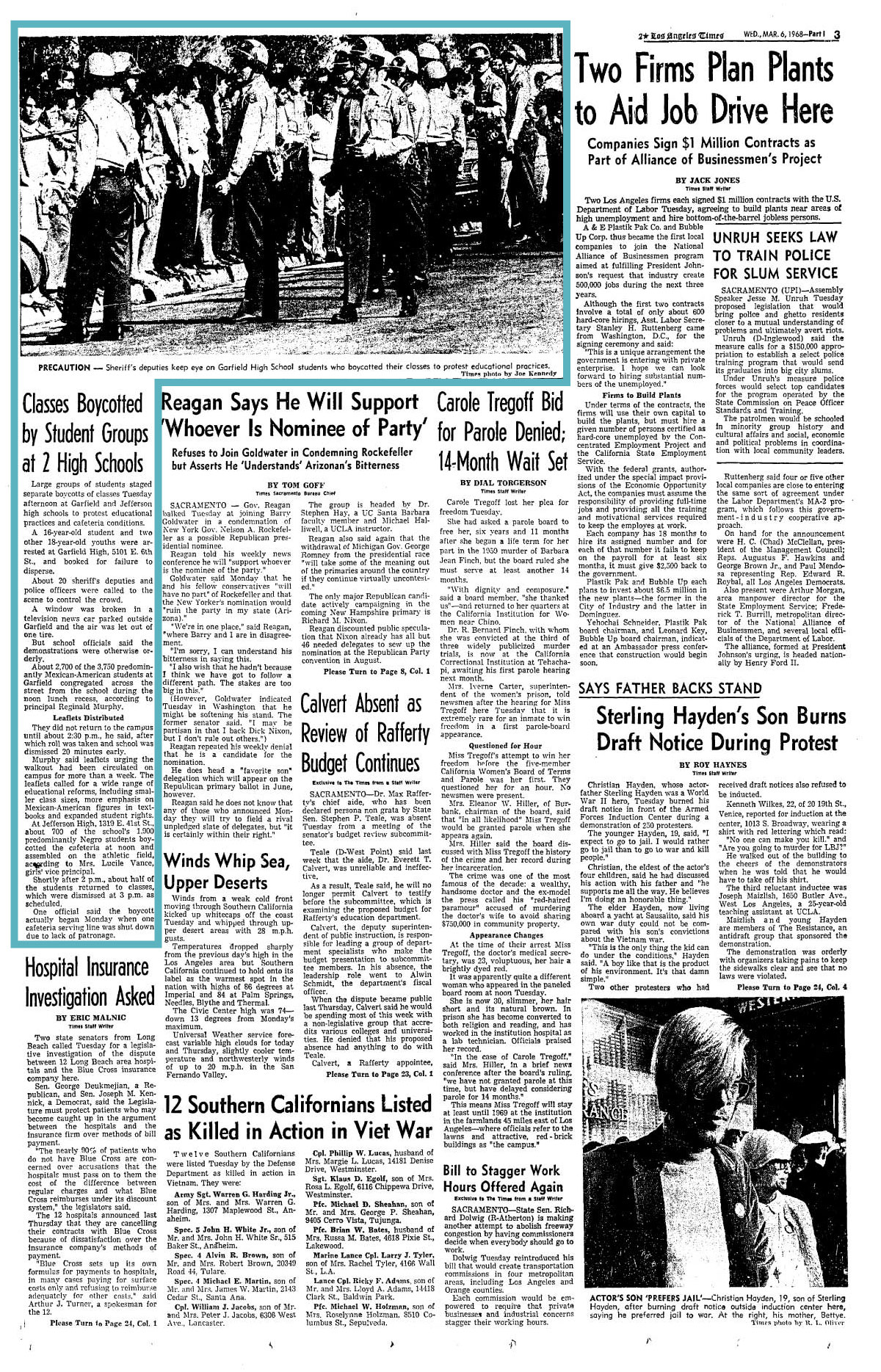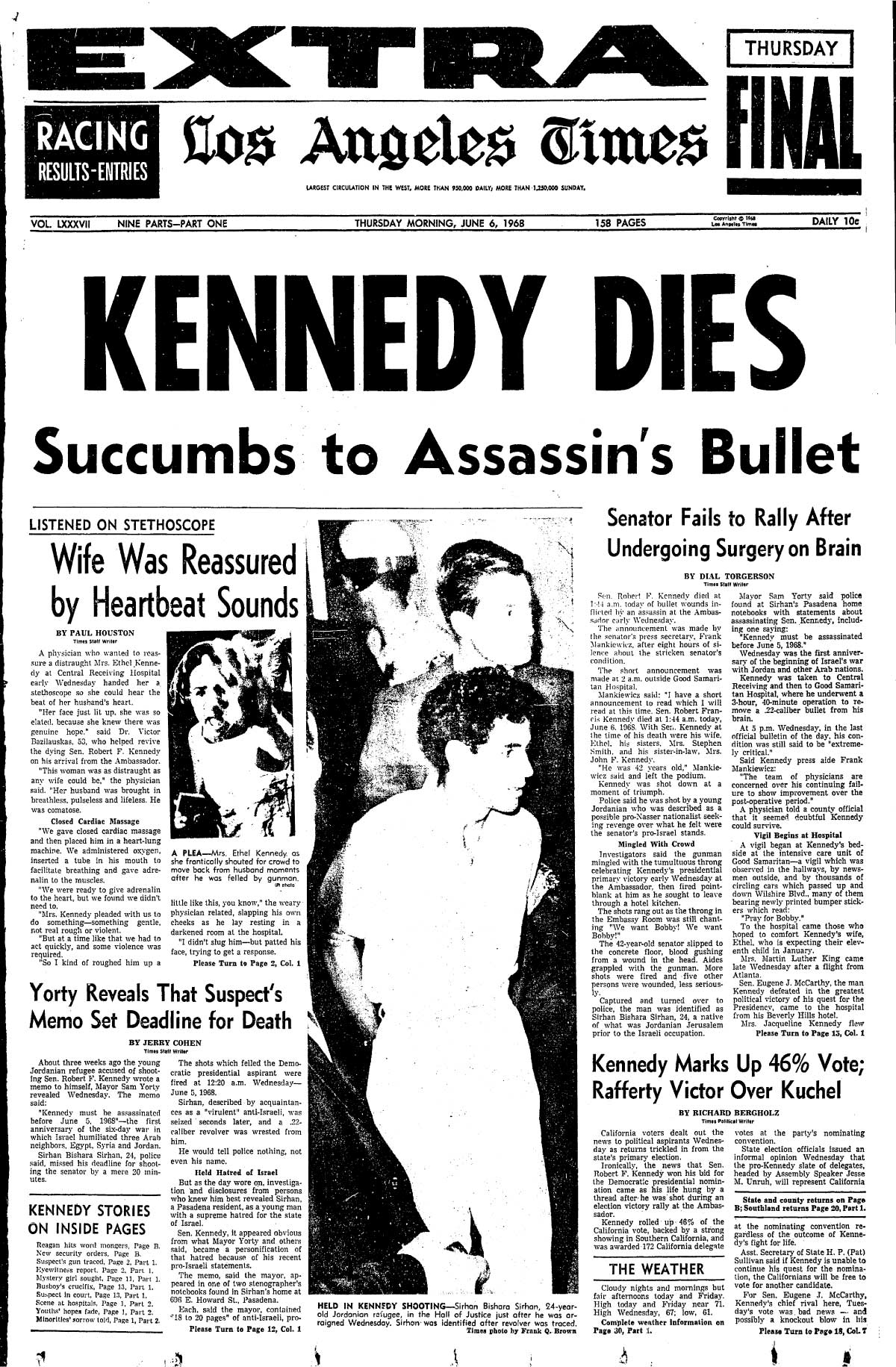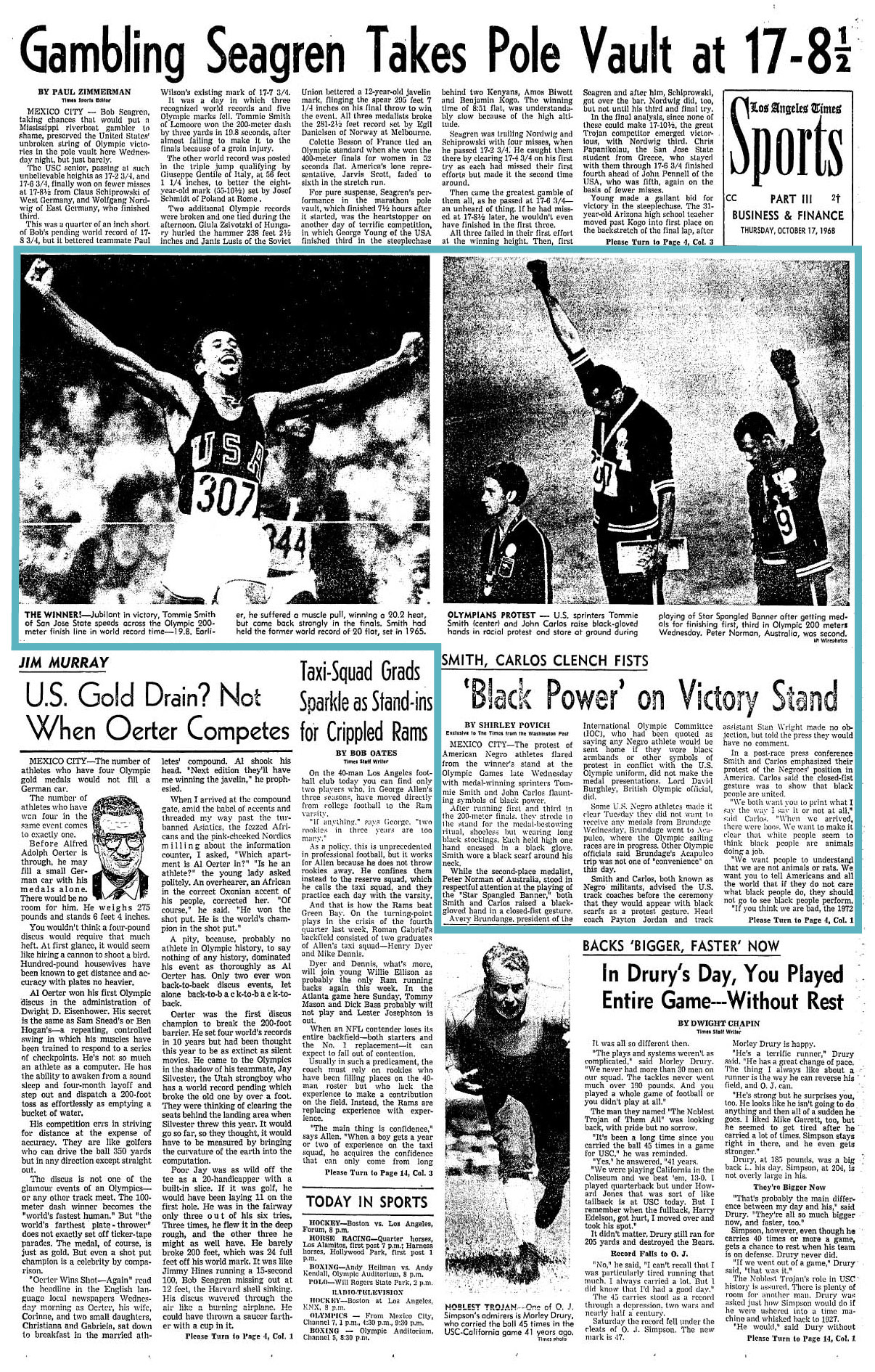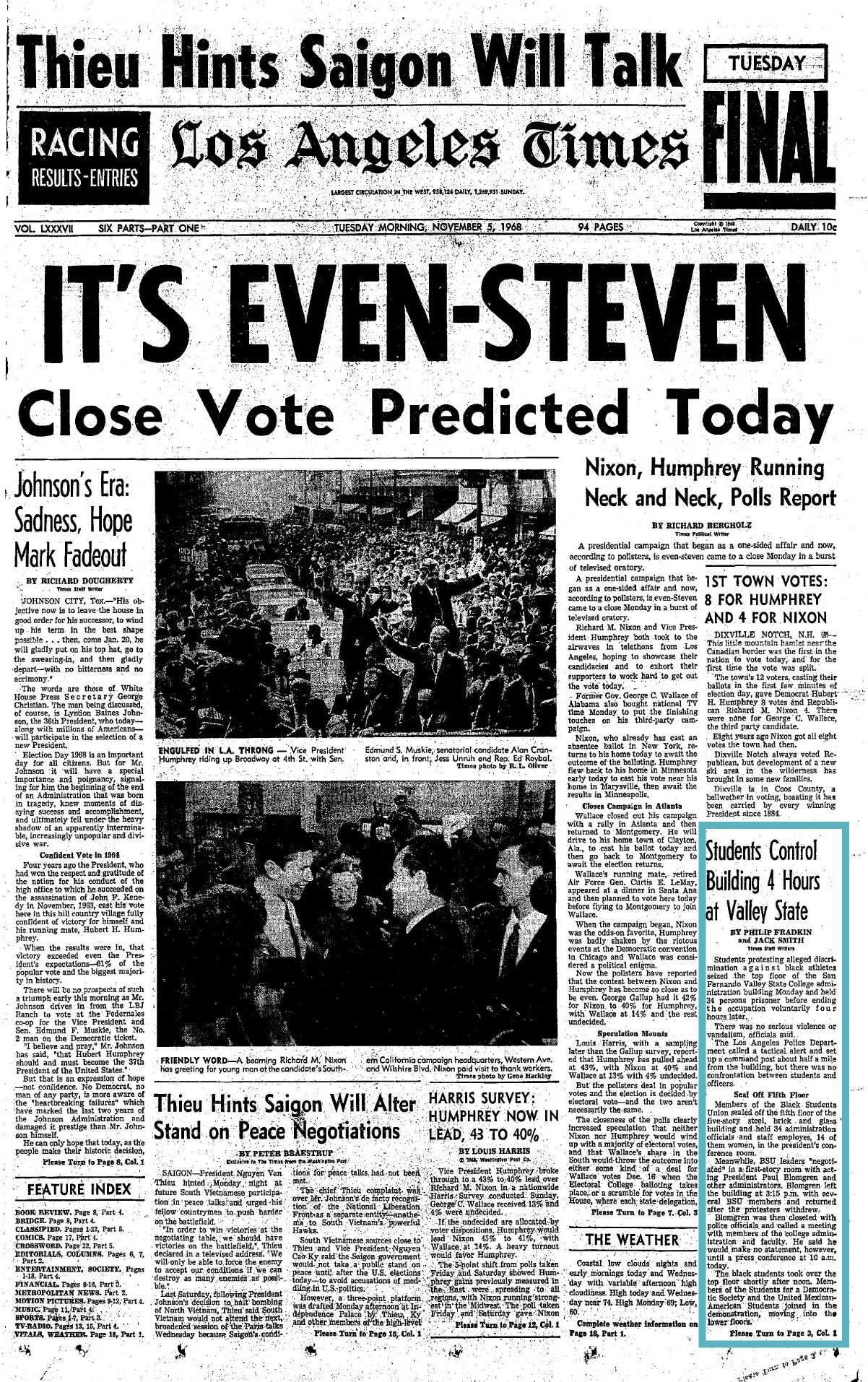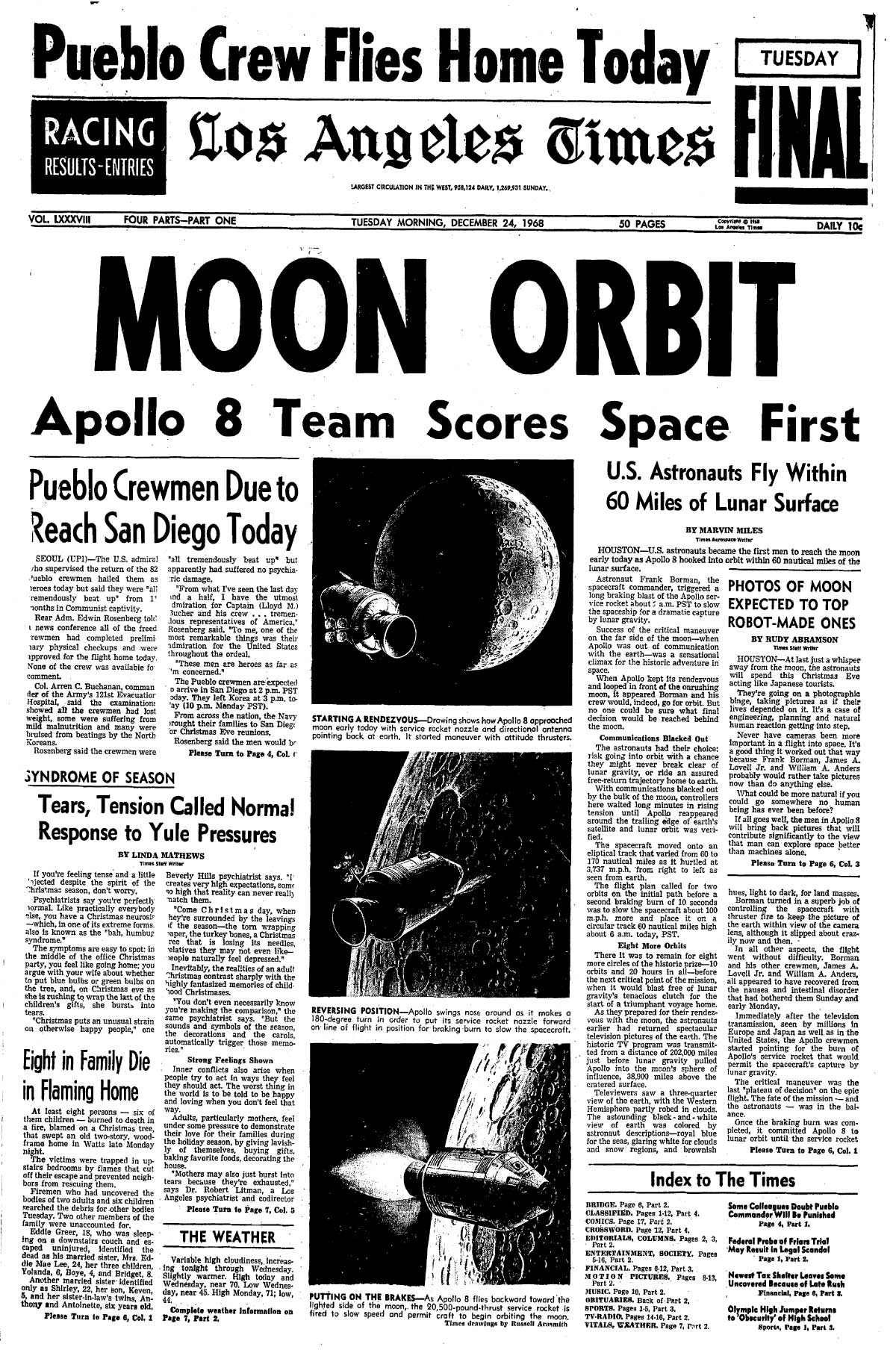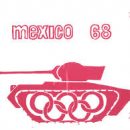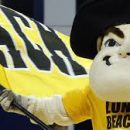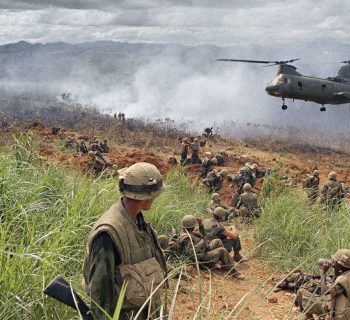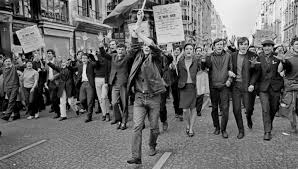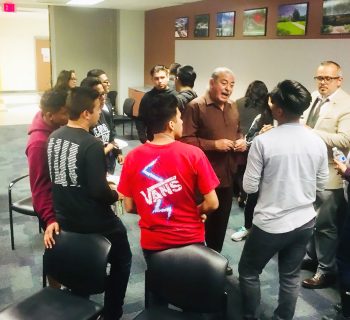By Steve Padilla, Vanessa Martinez, and Priya Krishnakumar ~ LA Times ~ March 1, 2018
It’s been 50 years and the tumultuous events of 1968 continue to shape and define our world. With each week, it seemed, came another shock, another tragedy. But in the 12th month the world came together for one transcendent moment.
Fifty years later, the L.A. Times is taking a reflective look back at that turbulent year. Help us retell the stories. Was there a moment, large or small, from 1968 that has stuck with you? What did you see? What did you do? Share your memory.
Tet Offensive
North Vietnamese troops and Viet Cong guerrillas launch surprise attacks throughout South Vietnam on the Lunar New Year, or Tet. Rockets, grenades and fires reduce portions of Saigon to rubble. U.S. and South Vietnamese forces eventually repel the offensive, and the North sustains heavy losses. Though militarily a failure, the offensive undermines public support in the U.S. for the war.
 (Associated Press)
(Associated Press)Viet Cong killed
 (Eddie Adams / Associated Press)
(Eddie Adams / Associated Press)East L.A. walkouts
Students at Garfield High School in East Los Angeles, most of them Mexican Americans, walk out of class to demand better educational opportunities and facilities. Lincoln High School social studies teacher Sal Castro helps instigate the protests and becomes one of the students’ most outspoken defenders. The walkouts spread to other campuses and lead to reforms throughout the Los Angeles Unified School District and inspire a generation of Mexican American activists.
 (Joe Kennedy / Los Angeles Times)
(Joe Kennedy / Los Angeles Times)Martin Luther King Jr. assassinated
The Rev. Martin Luther King Jr. is shot by James Earl Ray at the Lorraine Motel in Memphis, Tenn. Riots erupt across the country, notably in Washington, D.C., and on April 6 the Black Panthers engage in a shootout with police in Oakland. But many large African American communities heed the words of civil rights leaders to remain peaceful. On April 9, television coverage of King's funeral in Atlanta — his casket carried on a cart pulled by mules — grips the nation.
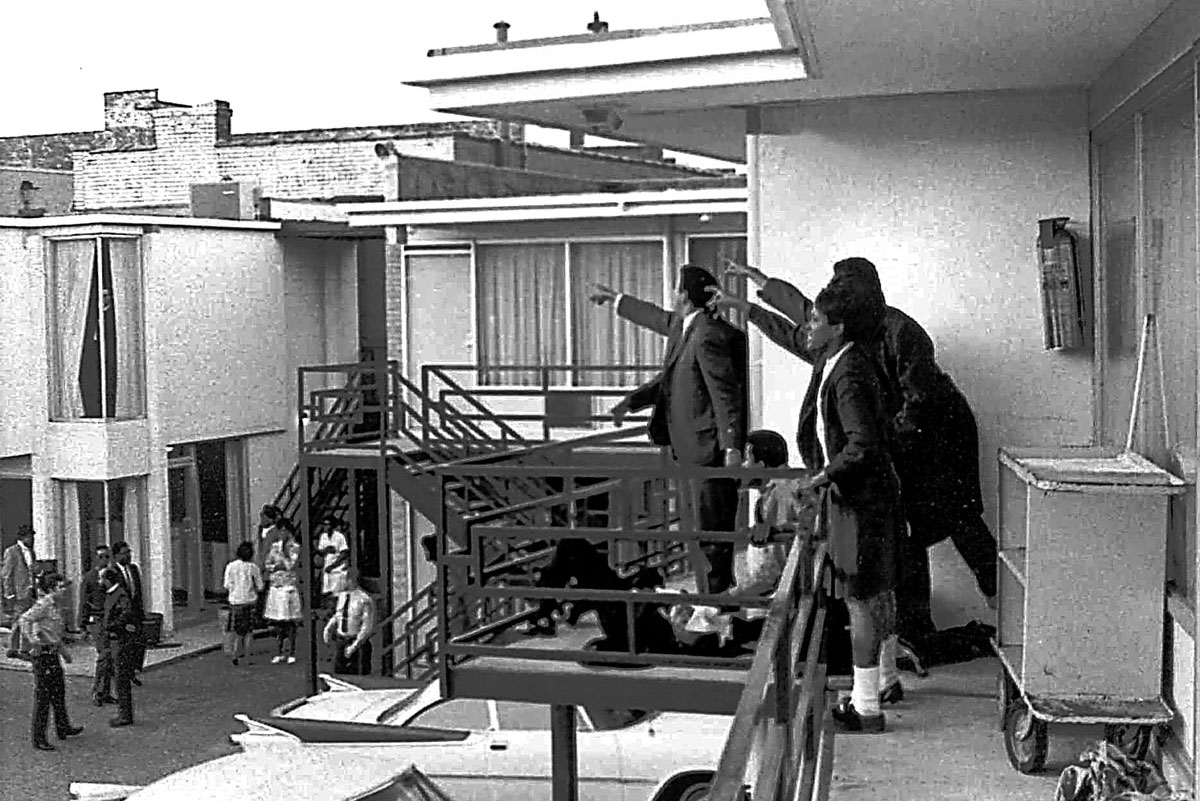 (Joseph Luow / Associated Press)
(Joseph Luow / Associated Press)Columbia University occupation
Students take over administration buildings at Columbia University in New York, an occupation triggered by a ban on student demonstrations and a university plan to build a gymnasium in a nearby black neighborhood. Students denounce the plan as racist. Police force out the students a week later, using crowbars and hacksaws to break through barricades. The protests inspire sit-ins at campuses across the nation in April and for months to come.
 (Columbia University Archives)
(Columbia University Archives)France in turmoil
An array of grievances — about education, the economy and the government of President Charles de Gaulle — triggers weeks of unrest across France. The turmoil begins May 2 with university student protests in Paris. Similar protests erupt nationwide and workers stage a general strike. Thousands of police are dispatched to restore order.
 (Associated Press)
(Associated Press)Robert F. Kennedy assassinated
Shortly after winning the California Democratic primary, Sen. Robert F. Kennedy is shot by Sirhan Sirhan at the Ambassador Hotel in Los Angeles. He dies the next day. At his funeral, Edward M. Kennedy asks that his brother not be idealized but be "remembered simply as a good and decent man, who saw wrong and tried to right it, saw suffering and tried to heal it, saw war and tried to stop it."
 (Boris Yaro / Los Angeles Times)
(Boris Yaro / Los Angeles Times)Czechoslovakia invaded
Troops from the Soviet Union and other Warsaw Pact nations roll into Czechoslovakia to quash the liberalization movement known as Prague Spring. Prague residents resist, even setting a Soviet tank afire, but they are no match for troops. Czech leader Alexander Dubcek had promised "socialism with a human face" and lifted restrictions on media and expression. This proves threatening to the Soviets, and a hard-line communist government resumes power.
 (STF/AFP/Getty Images)
(STF/AFP/Getty Images)Democratic National Convention violence
Thousands of police officers firing tear gas and swinging billy clubs descend on antiwar protesters outside the Democratic National Convention in Chicago. Protesters had squared off with police and National Guard troops earlier in the week, but the violent events of Aug. 28, televised live, horrify the nation and contribute to Democrat Hubert Humphrey's loss to Richard M. Nixon in November’s presidential election. A government report will later call it "a police riot."
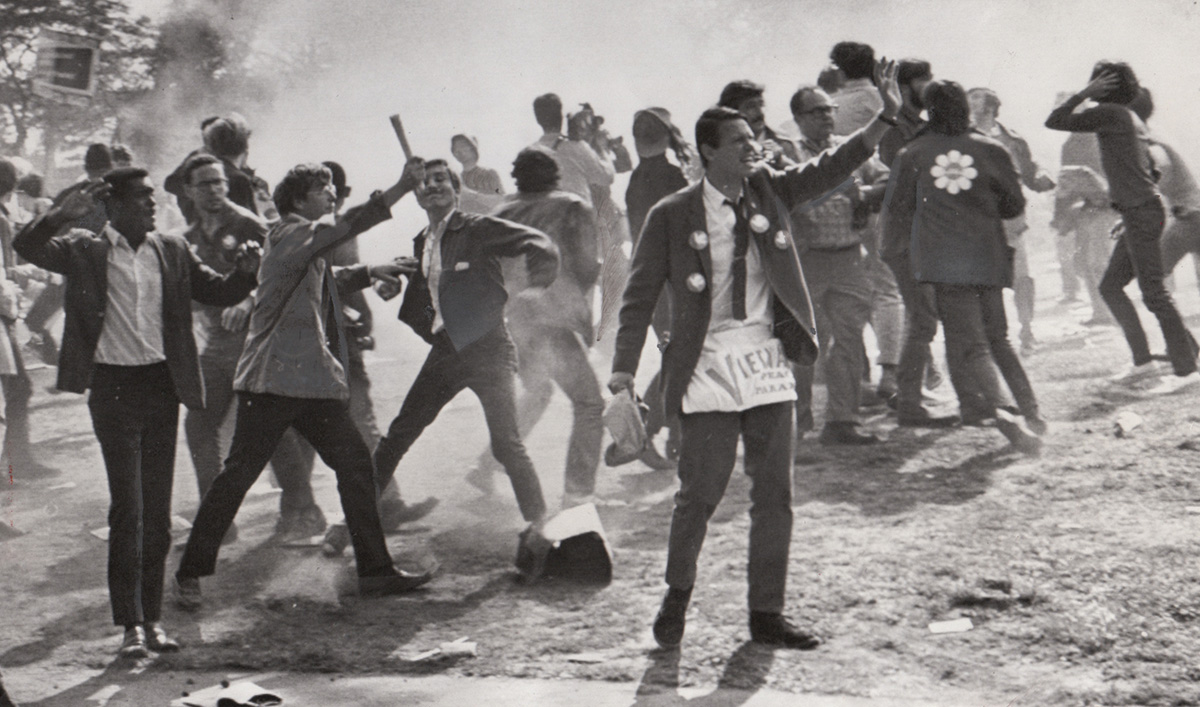 (Sun-Times / Associated Press)
(Sun-Times / Associated Press)Black Power salute
In an act that captures the anger of the times, U.S. Olympic sprinters Tommie Smith and John Carlos protest on the medal stand in the Mexico City Olympic Games as the “Star-Spangled Banner” plays. Smith had won the gold medal and Carlos the bronze in the 200 meters. Silver medalist Peter Norman of Australia joins them in wearing a badge from the Olympic Project for Human Rights, a civil rights group.
 (AP Daily Press)
(AP Daily Press)Valley State unrest
African American students storm the administration building at what was then known as San Fernando Valley State College to protest the institution's treatment of minority students. They detain 34 people before ending the occupation voluntarily four hours later. The standoff results in the arrests of 19 students and paves the way for the creation of the Pan African Studies Department at what is today Cal State Northridge.
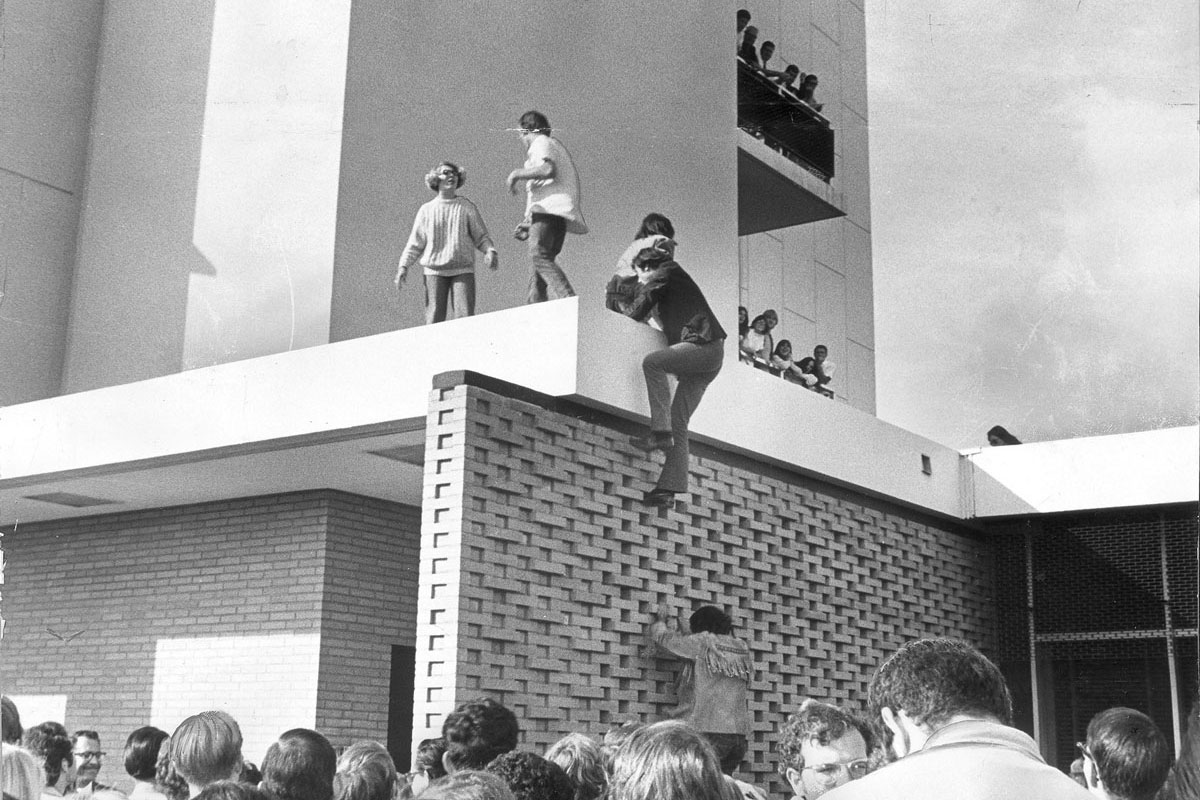 (Boris Yaro / Los Angeles Times)
(Boris Yaro / Los Angeles Times)Apollo 8 orbits moon
A traumatic year ends on a note of hope as Apollo 8, the first manned mission to the moon, reaches its destination. In a Christmas Eve telecast beamed worldwide, astronauts Frank Borman, Bill Anders and Jim Lovell read the first 10 verses from the “Book of Genesis.” Borman goes last, ending with the verse: “And God called the dry land Earth; and the gathering together of the waters called he Seas; and God saw that it was good.” Borman added: “And from the crew of Apollo 8, we close with good night, good luck, a Merry Christmas and God bless all of you — all of you on the good Earth.”
 (NASA)
(NASA)
